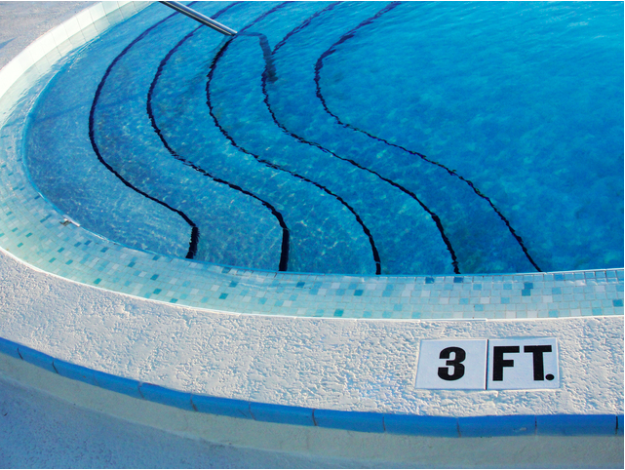
Now that pool season is here, it’s important to refresh yourself on pool cleaning chemicals and what they are responsible for. By using pool chemicals appropriately, you can maintain a sparkling clean pool all summer long! Additionally, balancing chemicals provides comfort to your swimmers and extends the lifespan of your pool surface and equipment.
Here is your simple guide to pool cleaning chemicals.
Testing the Water
- Test strips are a quick and easy way to test the pool water for sanitizer levels, pH and total alkalinity. By testing the water, you can also ensure that calcium levels are maintained and no metals are present.
Sanitizing the Pool
- Chlorine is the most popular way to sanitize a pool. It kills bacteria, keeps the water clean and is protected from sunlight degradation. Chlorine is also inexpensive and available in a variety of forms:
- 3” chlorinating tablets
- 1” chlorinating tablets
- Chlorinating sticks
- Chlorinating concentrate
- Bromine is another method for sanitizing your pool. Bromine lasts longer than chlorine and generally works better for warm spas and pools. However, it’s more expensive than chlorine and not available in all markets.
Shocking the Pool
- Shocking the pool needs to be done on a regular basis to keep the pool water clear and clean. Waste and bacteria is continually added to the pool water from swimmers and the natural environment. In order to prevent algae and cloudy water, shocking the pool is critical.
- The “shocking” process involves chlorine combining with bacteria during the sanitization process. The chlorine level is significantly raised in the pool for a short time. The combined chlorine is then burned up, returning the chlorine to normal levels.
Preventing Algae
- Preventing algae is an important step in maintaining your pool water. Algae grows when there is a lack of circulation, imbalanced water chemistry or low sanitizer levels. Even with the proper precautions, algae can still grow.
- Algaecides act as backups to your normal sanitization process. Add algaecide after shocking your pool.
Other Chemicals
- Other chemicals are available for treating specific issues such as calcium hardness, pH balance, alkalinity and metals. By testing your water regularly, you can determine if any of these issues need attention.
Always talk to your pool professional for advice. They can tell you which type of chlorine is best for your pool as well as other types of chemicals that are needed to keep your pool water clean, safe and healthy. If you live in the area, Paradise Pools will be happy to provide you with FREE water testing! Bring in a sample once a month and start saving money!

 CALL US TODAY!
CALL US TODAY!



